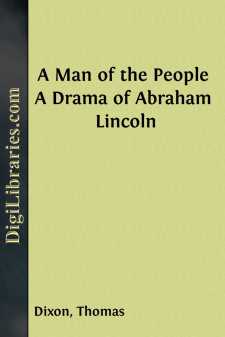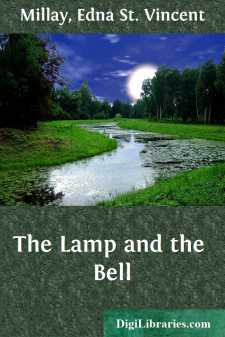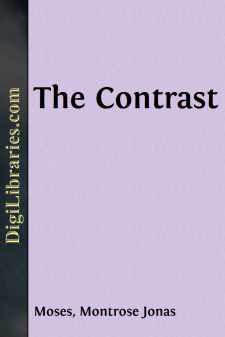Drama
American Books
Sort by:
by:
Upton Sinclair
THE NATUREWOMAN ACT I [Scene shows a luxuriously furnished drawing-room. Double doors, centre, opening to hall and stairway. Grand piano at right, fireplace next to it, with large easy-chair in front. Centre table; windows left, and chairs.] [At rise: ETHEL standing by table; a beautiful but rather frail girl of sixteen; opening a package containing photograph in frame.] ETHEL. Oceana! Oceana! [She...
more...
by:
Clyde Fitch
ACT I A charming room in the Tillmans' house. The walls are white woodwork, framing in old tapestries of deep foliage design, with here and there a flaming flamingo; white furniture with old, green brocade cushions. The room is in the purest Louis XVI. The noon sunlight streams through a window on the left. On the opposite side is a door to the hall. At back double doors open into a corridor which...
more...
by:
Thomas Dixon
HISTORICAL NOTE While the popular conception of Lincoln as the Liberator of the Slave is true historically, there is a deeper view of his life and character. He was the savior, if not the real creator, of the American Union of free Democratic States. His proclamation of emancipation was purely an incident of war. The first policy of his administration was to save the Union. To this fact we owe a united...
more...
ACT I Scene 1 [Scene: A garden of the palace at Fiori; four years later.] [Discovered seated Laura, Francesca and Fidelio, Laura embroidering,Fidelio strumming his flute, Francesca lost in thought.] LAURA. You,—Fool! If there be two chords to your lute,Give us the other for a time! FRANCESCA. And yet, Laura,I somewhat fancied that soft sound he made.'Twas all on the same tone,—but 'twas a...
more...
by:
Upton Sinclair
ACT I [JULIA PATTERSON'S apartments in a model tenement on the lower East Side. The scene shows the living-room, furnished very plainly, but in the newest taste; "arts and crafts" furniture, portraits of Morris and Ruskin on the walls; a centre table, a couple of easy-chairs, a divan and many book-shelves. The entrance from the outer hall is at centre; entrance to the other rooms right and...
more...
GEORGE HENRY BOKER (1823-1890) The name of George Henry Boker suggests a coterie of friendships—a group of men pledged to the pursuit of letters, and worshippers at the shrine of poetry. These men, in the pages of whose published letters and impressions are embedded many pleasing aspects of Boker's temperament and character, were Bayard Taylor, Richard Henry Stoddard, and Charles Godfrey Leland,...
more...
A PROLOGUE TO BE SPOKEN BY BETSY Our scene is the wind-swept coast of Devon. By day there is a wide stretch of ocean far below, and the abutments of our stage arise from a dizzy cliff. The time is remote, and ships of forgotten build stand out from Bristol in full sail for the mines of India. But we must be loose and free of precise date lest our plot be shamed by broken fact. A thousand years are but...
more...
by:
Bronson Howard
BRONSON HOWARD (1842-1908) The present Editor has just read through some of the vivacious correspondence of Bronson Howard—a sheaf of letters sent by him to Brander Matthews during a long intercourse. The time thus spent brings sharply to mind the salient qualities of the man—his nobility of character, his soundness of mind, his graciousness of manner, and his thorough understanding of the dramatic...
more...
ROYALL TYLER (1757-1826) William Dunlap is considered the father of the American Theatre, and anyone who reads his history of the American Theatre will see how firmly founded are his claims to this title. But the first American play to be written by a native, and to gain the distinction of anything like a "run" is "The Contrast," by Royall Tyler. Unfortunately for us, the three hundred...
more...
HOW TO BE A GOOD RADIO ACTOR The play in this book has actually been produced on the radio. Possibly you have listened to this one when you tuned in at home. The persons whose voices you heard as you listened, looked just as they did when they left their homes to go to the studio, although they were taking the parts of men and women who lived long ago and who wore costumes very different from the ones...
more...











